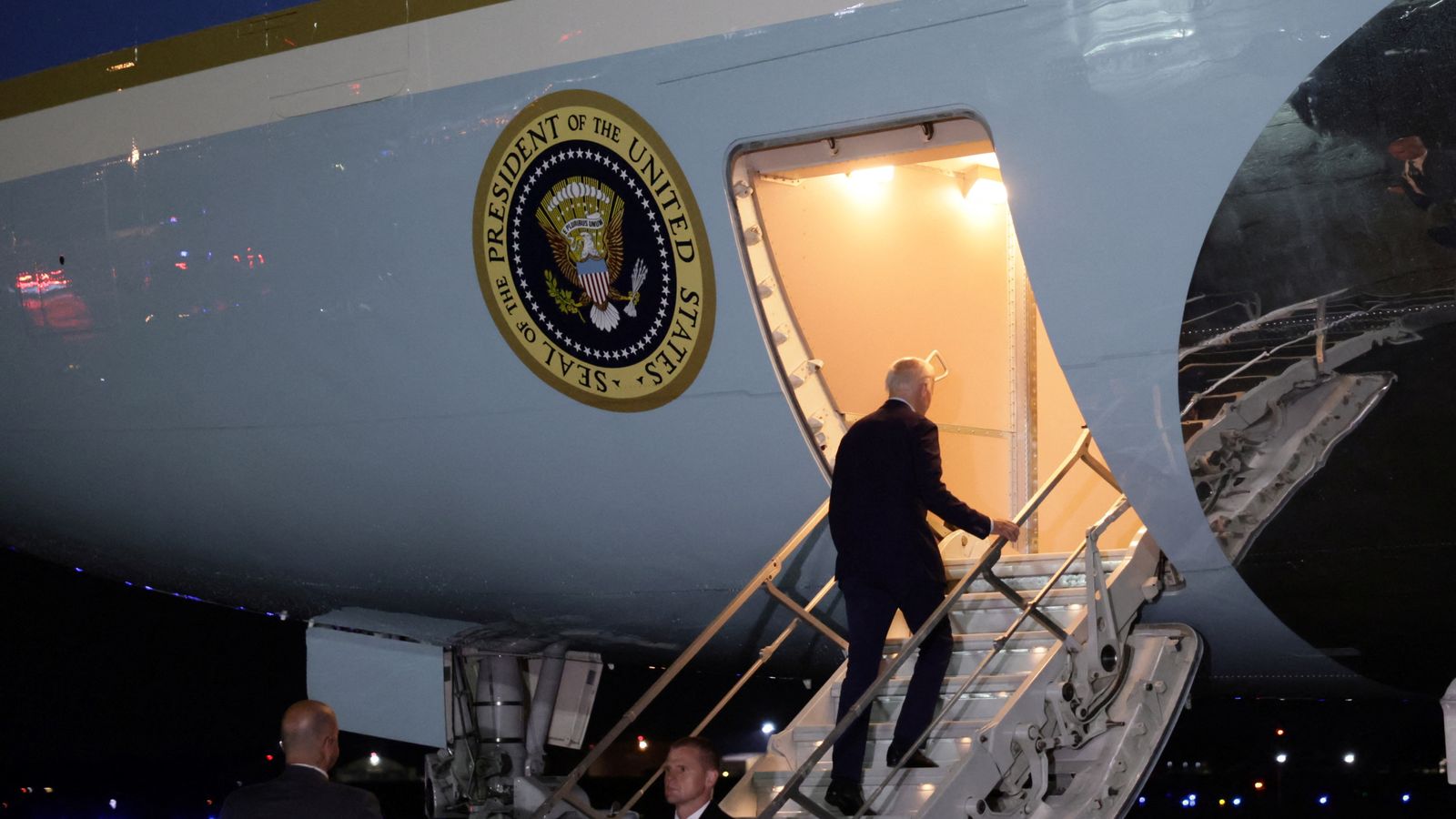President Joe Biden will arrive in the Middle East later today, for his first trip to the region since entering the White House.
Mr Biden, who will be accompanied by Secretary of State Blinken and other officials, will land at Israel’s Ben Gurion Airport on Wednesday afternoon to begin a three-day visit in Israel and the West Bank before moving on to Saudi Arabia at the end of the week.
Expectations have been tempered in recent days after reports that the visit could be an opportunity to officially announce improved relations between Israel and Saudi Arabia and a regional defence pact; instead, a series of lower-level announcements are expected that will signal closer ties in the region, building on the 2020 Abraham Accords.
Likewise, Palestinian hopes that Biden might honour his election manifesto and re-open a US embassy in east Jerusalem are unlikely to be met.
However, Yair Lapid, the new Israeli interim prime minister, has just revealed a series of measures that seem designed to please the US delegation, including legalising the status of 5,500 undocumented Palestinians living in Gaza and the West Bank and approve a small number of Palestinian housing projects.
Unlike past US presidents, most of whom arrived in the Holy Land with grand promises of peace deals, or commitments to solve the two-state solution, Mr Biden’s 48 hours will be short and lacking in big headlines.
He will hold meetings with Israeli politicians in west Jerusalem on Thursday, before meeting with the Palestinian leadership in east Jerusalem on Friday.
Jeff Bezos clashes again with Joe Biden’s White House over US economic woes
Supreme Court emissions ruling against Environmental Protection Agency is major setback for Joe Biden
Roe v Wade: Joe Biden looking for ‘solutions’ after Supreme Court’s abortion ruling as protests continue in Washington
The US president will also travel to Bethlehem in the West Bank to visit the Church of the Nativity, said to be the birthplace of Jesus.
Iran will be near or at the top of the agenda when the leaders meet, with Israel pushing the growing threat from Tehran and its proxies, whilst the US is eager to salvage hopes of a new nuclear deal.
Follow the Daily podcast on Apple Podcasts, Google Podcasts, Spotify, Spreaker
For much of his presidency, Mr Biden has paid less attention to the Middle East than his predecessors, preferring instead to focus on China and more recently the conflict in Ukraine.
This has been for a number of reasons: having itself become an exporter of oil, the US is less reliant on Gulf energy reserves, the administration is also mindful of the negative effects of US military interventions in the region, and Mr Biden has been reluctant to get pulled into the Israel-Palestine conflict.
So why visit now? The timing is hardly ideal – Israel has an interim prime minister and faces new elections later this year, and the Palestinian leader Mahmoud Abbas has seen his authority erode in the West Bank over recent months, both situations leaving the prospect of a two-state solution unthinkable for now.
But the US is wary of Russia and China stepping into its shoes in the region, and the war in Ukraine has also changed the US calculus.
In 2018, only four years ago, Mr Biden described the Saudi Crown Prince Mohammed bin Salman as a “pariah” after the murder of Saudi journalist Jamal Khashoggi.
Mr Biden’s visit to the Kingdom, has already received sharp criticism but he will go to Jeddah to press the Saudis’ into increasing oil output to ease a global energy crisis caused by Russia’s invasion of Ukraine and ensuing sanctions.
The eight-year war in Yemen will also be on Mr Biden’s agenda when he visits the Saudi coastal city of Jeddah for talks with King Salman and Crown Prince Mohammed bin Salman.
An uneasy truce hangs over the world’s worst humanitarian crisis and Biden is hoping to convince Saudi Arabia to make that permanent.
But the oil crisis, as a result of Russia’s invasion of Ukraine, will be at the centre of discussions, with the US hoping to persuade the Saudi’s to increase production so as to lower global costs.
Mr Biden might have sought to keep his distance, but no US president can ignore the Middle East and, like his predecessors, the 46th president finds himself pulled back into the region, whether he likes it or not.




